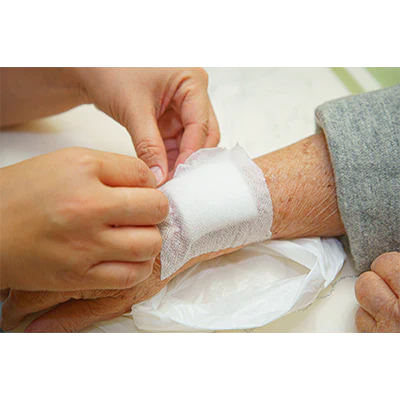Hydrocolloid, Foam, or Alginate? Choosing the Right Wound Dressing for Every Stage
Shoppers often ask which dressing gives the fastest healing and least mess - hydrocolloid, foam, or alginate? The short answer is: it depends on the wound's depth, drainage, and location. In this guide, we explain how each category works and link directly to dressings available right now at BestBuyMedicalSupplies.com so you can click, add to cart, and get on with healing.
1. Why Dressing Choice Matters for Wound Healing
Using the correct wound care dressing improves moisture balance, keeps bacteria out, and speeds pressure-ulcer, diabetic-foot-ulcer, and burn recovery. Search engines and clinicians look for evidence-based phrases like "exudate management," "moist wound environment," and "atraumatic removal," so we weave them in naturally below.
2. Hydrocolloid Dressings: Best for Low-Moderate Exudate
Hydrocolloid sheets are self-adhesive wafers that gel on contact with wound fluid, keeping the site moist while blocking bacteria. Ideal for Stage-II pressure injuries, shallow burns, and post-op incisions.
- Comfeel Plus Hydrocolloid Dressing 4"4"
- Procol Hydrocolloid Dressing 4"4"
- Cutimed Hydro Light Hydrocolloid 4"4"
When to choose: dry-to-lightly oozing wounds needing protection from friction (heels, sacrum). Avoid on heavily draining or infected lesions.
3. Foam Dressings: Best for Moderate-Heavy Drainage & Cushioning
Polyurethane foam absorbs 5-20x its weight, wicks laterally, and cushions bony areas. Some foams pair with Negative Pressure Wound Therapy (NPWT) for complex, tunneling wounds.
- Invia NPWT Foam Dressing Kit (Small)
- Invia NPWT Foam Dressing Kit (Large)
- MPM Medical Non-Bordered Foam 4"4"
When to choose: moderate-exudate ulcers, post-surgical wounds needing padding, or early granulating burns. If drainage is minimal, switch to hydrocolloid to prevent desiccation.
4. Alginate Dressings: Best for Heavy Drainage & Bleeding Control
Derived from brown seaweed, calcium alginate fibers form a soft gel that locks in exudate and helps control minor bleeding - perfect for cavity wounds and diabetic ulcers.
- Integra Algicell Calcium Alginate 2"2"
- Algicell Calcium Alginate 4"4"
- Safe N Simple Simpurity Alginate 4"4"
When to choose: deep cavity wounds with copious drainage. Always cover with a secondary dressing (foam or gauze) to keep everything secure.
5. Quick-Pick Guide
- Low Draining / Shallow? Hydrocolloid
- Medium Draining / Needs Cushion? Foam
- Heavy Draining / Cavity? Alginate + Cover
6. Pro Tips for Optimal Results
- Cleanse with non-cytotoxic rinse before each dressing change.
- Match dressing size + 1 inch margin to prevent roll-up.
- Secure edges with skin-friendly tape or bordered foam on high-friction sites.
- Consult a wound-care nurse if you see odor, fever, or periwound maceration.
Disclaimer: Content is for educational purposes and does not replace professional medical advice. Always follow your clinician's orders.

